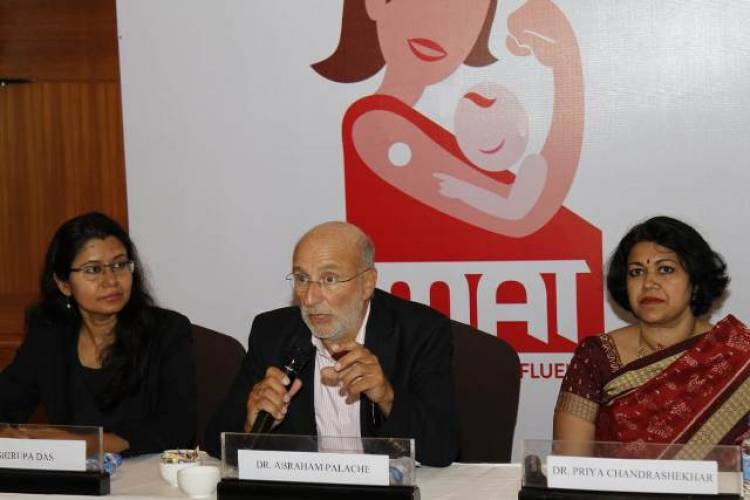Addressing the need for vaccinating against influenza, through Abbott’s “Mothers Against Influenza” initiative

• Influenza is a more serious disease than one often realises. Children are at a high risk of developing influenza-associated complications.
• The virus causing influenza undergoes antigenic mutation and causes periodic epidemics and pandemics, and is thus a global public health problem.
• National Center of Disease Control data shows that influenza cases have increased 5-fold in India from 2012-2019, and in Tamil Nadu, influenza cases have grown at a rate of 24% per annum from 2012 to 2018.
• Infection rates among children are generally the highest of any age group during typical influenza seasons, averaging 25%–43%.
• Vaccination remains the most effective method of preventing influenza.
• With the latest research and evidence indicating that quadrivalent influenza vaccines can offer increased protection, Abbott will soon be launching the influenza quadrivalentvaccine.
26 July, 2019, Chennai: Influenza is a highly infectious respiratory disease of viral origin. Distinct from the common flu, influenza can result in high fever lasting for 3 to 4 days, headache, myalgia,exhaustion and severe chest discomfort and cough. The condition can also result in complications. Secondary bacterial pneumonia is a frequent complication, while other complications include myocarditis, worsening of chronic pulmonary diseases and Reye syndrome.The virus causing influenza undergoes antigenic mutation and causes periodic epidemics and pandemics, and is thus a global public health problem, causing considerable mortality and morbidity. The National Center of Disease Control estimates that influenza cases have increased 5-fold in India from 5,044 in 2012 to 26,366 in 2019 alone (till July 2019). Correspondingly, the number of deaths attributable to influenza has more than doubled from 405 in 2012 to 1,072 in 2019. In Tamil Nadu, influenza cases have grown at a rate of 24% per annum from 2012 to 2018.
In India, seasonal influenza epidemics occur during the rainy season months, from June to August in Northern India and from October to December in Southern India, including Tamil Nadu. Peak influenza activity is associated with significant morbidity and mortality; one study found that influenza accounted for 20-42% of monthly acute medical illness hospitalizations during the rainy season. People with underlying (chronic) medical conditions such as respiratory, cardiac disease and diabetes as well as young children and the elderly are at increased risk for flu-associated complications / hospitalizations.
Children are at a high risk of developing influenza-associated complications. A review of multiple studies identified that the most frequent complication of influenza in children is middle ear infection or Acute Otitis Media, which can occur in 20–60% of children suffering from influenza. Asthmatic children are at high risk of developing acute exacerbations of their asthma.
Dr. Priya Chandrasekhar, Consultant at Apollo Children’s Hospitals observed, “Children are disproportionately affected by influenza. Infection rates among children are generally the highest of any age group during typical influenza seasons, averaging 25%–43%. In a review of annual epidemics, it was demonstrated that influenza-attack rates reached 30% in pre-school and school-aged children.[2] Vaccination is the best way to prevent influenza. If at least 50% of children are vaccinated, then the epidemic can be contained and the burden reduced. The best time to get vaccinated is before the monsoon, in August in Tamil Nadu.”
“Vaccination remains the most effective method of preventing influenza . The National Center of Disease Control estimates that influenza cases have increased 5-fold in India from 5,044 in 2012 to 26,366 in 2019 alone (till July 2019). Correspondingly, the number of deaths attributable to influenza has more than doubled from 405 in 2012 to 1,072 in 2019. In Tamil Nadu, influenza cases have grown at a rate of 24% per annum from 2012 to 2018.,” commentedDr. Srirupa Das, Medical Director, Abbott.
Abbott has initiated a “Mothers Against Influenza” (MAI) campaign to raise awareness and encourage mothers to initiate conversations with their doctors, so that they are thoroughly informed about influenza, its symptoms and precautions they can take. Through this campaign, we have been able to raise awareness amongst parents in general and mothers specifically.” WHO and the Ministry of Health and Family Welfare recommend influenza immunization for people at increased risk of influenza-associated complications and serious disease. Dr. Abraham Palache, a global expert in influenza vaccinology explained, “Influenza vaccines reduce the annual burden of influenza associated disease, hospitalizations and deaths, and the WHO classifies inactivated influenza vaccines as ‘excellent safety’.”
Currently, Influenza A/H1N1, A/H3N2 and B viruses are circulating. The disease burden of both A and B viruses is substantial, and B viruses have been estimated to be associated with 25% of all influenza related mortality globally.Trivalent influenza vaccines (TIVs), which comprise of three influenza strains (two type A strains and one type B strain) offer substantial protection against matching B-strains.However, protection may be enhanced by adding another type B-strain in quadrivalent influenza vaccines (QIVs). As influenza B is associated with substantial mortality, the use of QIVs over TIVs may further reduce the burden of influenza. Dr. Srirupa Dasremarked, “Abbott is committed to ensuring that its vaccines portfolio offers the best protection against influenza. With the latest research and evidence indicating that QIV can offer increased protection, Abbott will soon be launching the influenza quadrivalent vaccine.”
Modeling studies have estimated that annual influenza epidemics could be contained if 50%–70% of children were vaccinated. Dr. Abraham Palache elaborated on this community benefit, “Research shows that vaccination has a ‘herd-immunity’ benefit: high level of vaccination rates in children not only protect those who are vaccinated, but also protect non-vaccinated (pre-school) children and adults in their environment. It’s important to remember that we come in contact with the elderly, children, parents of children and pregnant women on a daily basis, all of whom could be put at risk of getting the flu virus from us. Getting yourself and your family vaccinated before influenza season is beneficial not only for you, but for the entire community.”




















